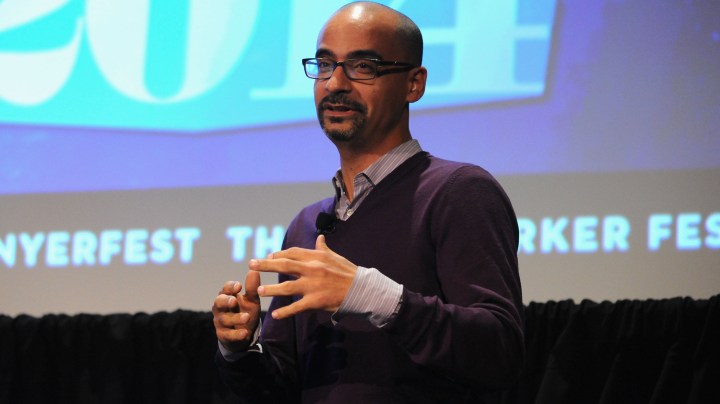Junot Díaz on Lack of Diversity in Books: ‘Islandborn’ “An Attempt to Do Something About It”

Writer Junot Diaz attends the Jersey Boys: David Chase, Junot Diaz, And Sam Lipsyte Moderated By David Remnick during The New Yorker Festival 2014 on October 10, 2014 in New York City. Photo by Andrew Toth/ Getty Images Entertainment
Through his books, Junot Díaz has given many of us literary figures that capture our experiences. With his latest and first children’s book, Islandborn, he’s not only fulfilling a promise he made to his goddaughters two decades ago, he’s also helping to fill a void that has long existed. When Junot arrived to the United States from the Dominican Republic in his childhood, he quickly realized that his story didn’t exist in the media or literature.
“I knew I was in trouble as soon as I got off the plane,” he told Crosscut. “I didn’t understand the magnitude of the trouble. That took many years. But I knew something was really the matter. I knew we were in serious trouble. And just the fact that I went from a country where there was really only one primarily color, Black and shades of it, and suddenly to be thrust into a country like the United States, which was such a disavowal of Blackness.”
This is why it’s so important that his book centers a young Afro-Latina heroine. Islandborn tells the story of Lola, a young girl who’s tasked with drawing a picture of where her parents came from for school. Because she left the island as a baby, she can’t conjure up a clear image. She turns to family members an neighbors to help her learn about the Dominican Republic. In the process, she learns about the island’s dark history. The book touches on immigration, struggling to find a place of belonging, and identity.
Islandborn is the kind of book he needed growing up. “I experienced it, and I certainly never wanted anyone else after me to experience it,” he added. “So there’s the agony of the persistence of a crime, that something hasn’t been repaired. It certainly hurts you to know that the younger people, that the youth are going through things that you had hoped, by this time, would’ve been resolved. But ultimately, you’ve gotta recognize the problem and see if you can do anything about it. And this book was an attempt to do something about it.”